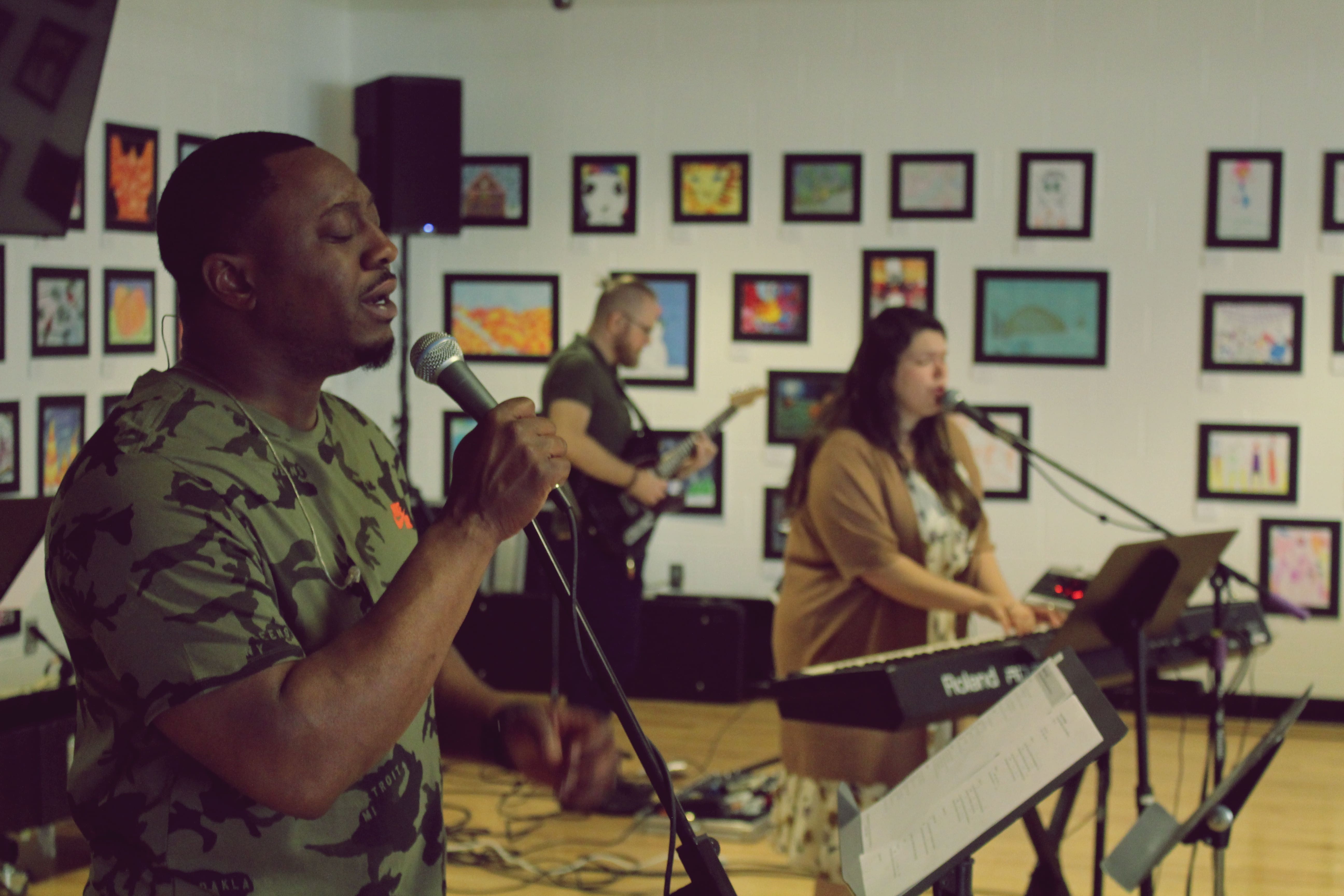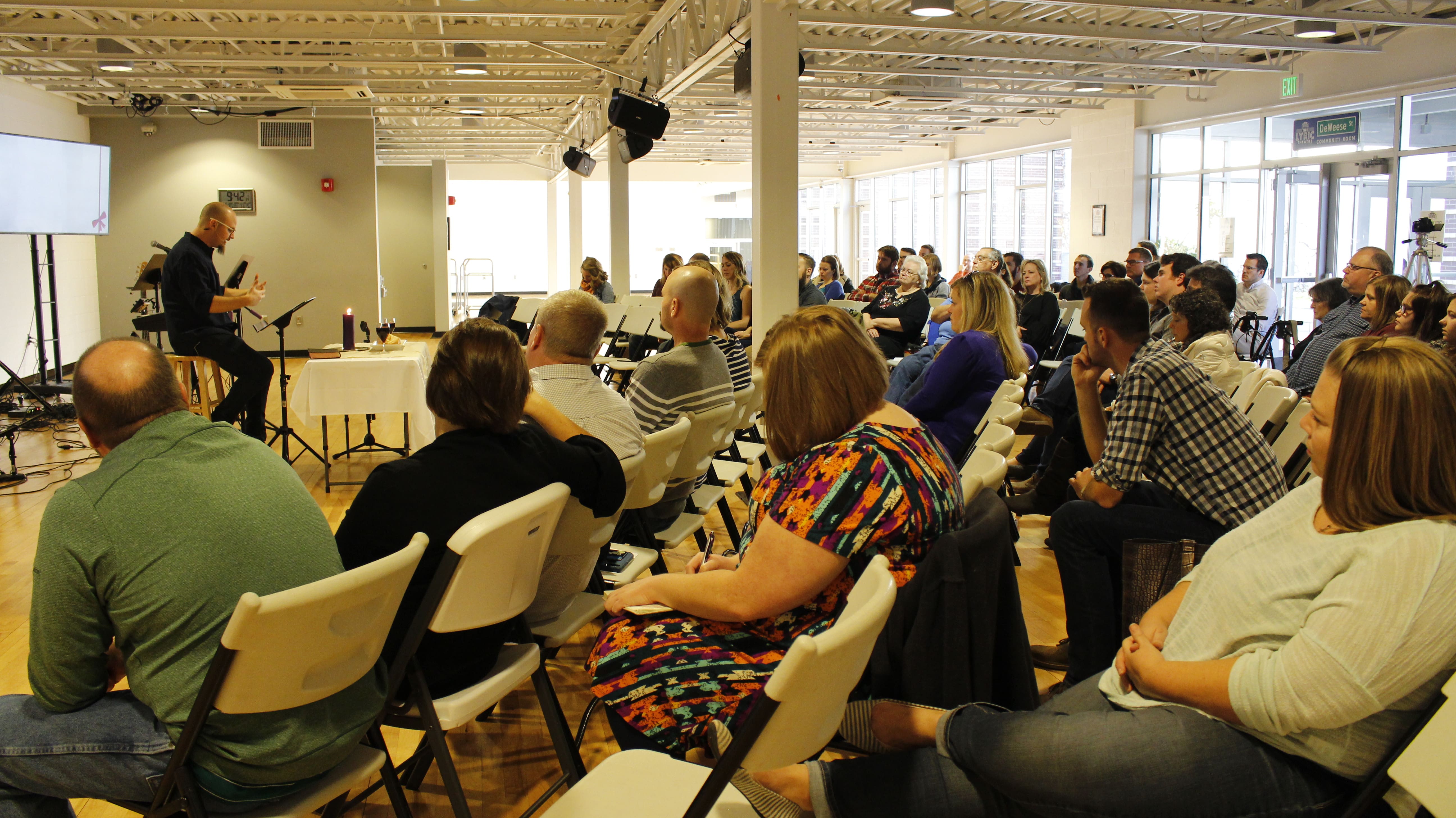If you ask the average person why Christians gather on Sundays, you usually get a variation of one answer: to experience God. In many church’s you’ll hear songs and prayers with language around wanting and desiring God to “come into this place,” or how we “long for His presence.” From the outside, it would seem that the Sunday gathering is the primary experience of God’s presence in the Christian life, and if we miss out or don’t feel it, we’re stuck until next Sunday.
The belief that God primarily resides and reveals Himself on Sundays has created a culture where an environment of personal experience reigns supreme. Darkened rooms, bright lights, giant screens, and high stages became the cultural norm – the environment a growing number of people associated with “church.” Speaking from experience, there’s often a pressure to make what happens on Sunday be the end-all-be-all of the Christian faith. The push for bigger, brighter, and better never ceases. An endless stream of time, energy, and resources is needed to keep the experiences going.
often a pressure to make what happens on Sunday be the end-all-be-all of the Christian faith. The push for bigger, brighter, and better never ceases. An endless stream of time, energy, and resources is needed to keep the experiences going.
So for the many who walk into Restoration having been a part of this framework of Church, there’s a definite culture shock. A bright, relatively ordinary room with folding chairs, a few screens for lyrics and scripture, a band, and a table for communion meet you. I’ve heard it over and over again: this feels simple. And it is – intentionally. One person described it as a detox from a screen-saturated, distraction-heavy world.
I like to describe our gatherings as striving for sacred simplicity. We, too, want to experience God as we gather together, but our belief about God’s presence and activity in our lives compels us to create a different kind of worshipping culture that may be new to some. We don’t think it’s better or more spiritual, but it’s different – on purpose. Let me explain.
God In The Ordinary
Is God present when we gather in worship on Sunday? Absolutely. But is He more present than the rest of the week? No! We believe that God is always present and at work all around us – even when we don’t see it. Unlike in the Old Testament, God’s Spirit no longer dwells in a Temple made by human hands. Our new reality through the redemptive work of Jesus Christ has made us the Temple. Both as individuals and as a gathering community, we are inhabited by the Spirit of God to be His kingdom people wherever we go.
So if it’s true that God is always present and at work in and around us, then the life of faith is learning to be present to the presence of God in every area of our lives – not just an hour on Sunday. This is especially true in the ordinary places in our lives. Most of us probably don’t think about God being present in the laundry, in our commutes to work, in our kid’s soccer game, or at the grocery store. But what if we were? What if there wasn’t a molecule or moment that wasn’t charged with the living presence of God? If this is true, how would you see your world differently?
To take it a step further, how would you see Sunday at Church differently? If the pressure is not on the worship service to be the only tangible experience of God’s presence in my life, then I can gather to celebrate what he’s already done in and around me throughout the week. I am no longer under the tyranny of whether I’m “feeling it” or not. I can trust God’s presence at work in and around me – no matter what environment I’m gathered in. Even more, I can momentarily take my eyes off the quality of my own experience and see the beauty of my brothers and sisters in the faith all around me. It’s not just me now. it’s us.
From Me To We
As a people of the presence, we are the Church wherever we go. But when we gather for worship, something unique and sacred takes place as we join together around hearing from and receiving God. It’s inherently communal – an experience meant to be shared. It’s why we encourage an environment of participation rather than performance.
In seeking sacred simplicity when we gather, our heart is not to offer another spiritual performance for a crowded room of individuals to consume. Instead, we believe worship  involves participation – both with God and others – as one body. Each week, we turn and greet one another for a moment or two to remind us of those who are around us – that we are not alone. We sing songs of worship together. We read scripture and pray together. We share in the communion meal together, walking forward to receive from God as a family. After the message, we spend time in response and prayer, personally processing what we feel like God is speaking to us that day.
involves participation – both with God and others – as one body. Each week, we turn and greet one another for a moment or two to remind us of those who are around us – that we are not alone. We sing songs of worship together. We read scripture and pray together. We share in the communion meal together, walking forward to receive from God as a family. After the message, we spend time in response and prayer, personally processing what we feel like God is speaking to us that day.
For us, the togetherness of worship is vital. Even those at different places in their spiritual journey can feel free to walk along at their own pace. Some worship with hands raised, others stand quietly. Even if the sum total of your participation is sitting in your chair with your arms crossed telling God you’re not sure if He’s even there, you’ve participated. All in all, we hope to create an environment where you leave knowing that not only was God present with you, but that other people who support and love you were present too.
Faithful, Not Perfect
As I said earlier, we have no inclination that we are better or more spiritual in these pursuits as we gather. We have no desire to be a perfect Church… but we do want to be a faithful one, even in the messiness of life. The God who has made himself known to us in Jesus Christ is always present and at work all around us, and in light of this great hope, sacred simplicity is what we feel called to pursue as we gather as a community.
All this being said, we’re not interested in graduating from simple. We believe Jesus is restoring people who restore the world, and when we gather on Sundays, we want to feel connected to the stories and movement of God’s restoring love in the people all around us. And we do so without the pressure that the grandiosity of our gathering will determine God’s ability to be fully present with us. There is good news! He is here, he is present, and he is at work. On Sunday, as well as every day of the week, we want to live like that’s true.

